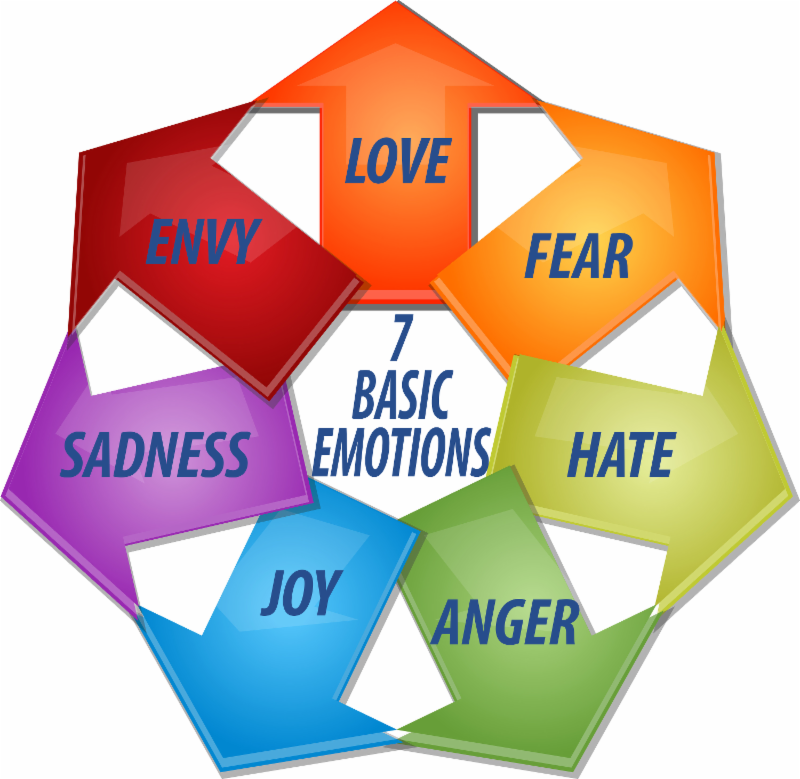How Do You Feel?

It’s a pretty simple question, really, but many people have a hard time answering. Yet, being able to identify your feelings/emotions is a critical step in managing them. And, in professional situations how you manage your emotions can be the difference between getting promoted and getting fired.
At one of my recent workshops a man commented that he didn’t get along with one of his co-workers, and communication and cooperation between them was very strained, causing them both to be less productive.
“What do you feel when you both are in the same room?” I asked.
He replied, “I’m just tired of how he is always late to work and doesn’t seem to care.”
“And how do you feel then?” I asked.
“He always acts like he’s better than everyone else, but he’s at the same pay-grade as me” he said.
“You’re telling me what you THINK, but how do you feel? What emotions are coming up for you?” I asked.
The gentleman gave me a blank stare, and then asked, “What’s the difference?”
What we THINK and what we FEEL are two different things. We think thoughts, we feel emotions. But, truly identifying our emotions can sometimes be difficult. And, if we can’t figure out what we feel, we are not likely to identify the root or triggers of our feelings nor be able to work through the issues.
So, what are feelings?
Feelings are mediated by a part of the brain and are influenced by what we think and how we perceive things. Stress plays a big part on our feelings, and often makes it more difficult to manage our emotions. Imagine how you feel when a customer snaps at you unfairly, or your boss adds more work to your already-filled “To do” list. How do you feel? How do you react?
There are seven basic emotions, each with many sub-feelings:

- Love
- Fear
- Hate
- Anger
- Joy
- Sadness
- Envy
If you are someone who has difficulty identifying what you feel, take this list and write down a specific time when you felt each emotion, and think about how your body responded. Were you sweating, was your jaw clenched, did you laugh uncontrollably…?
When under a lot of stress, chances are your emotions may get the best of you and cause you to yell, or possibly to push your emotions down, withdraw, and silently fume to yourself. Neither of these actions will produce a positive solution and help resolve the problem or your feelings.
So, how can you control your emotions?
- The first thing to do is stop and evaluate what you are feeling. (anger, fear, frustration, etc.)
- Pay attention to what you’re thinking. (“Stop making excuses, Jack.”)
- Replace any negative thoughts with something positive – become a solution-finder. (“Jack isn’t going to own up to his mistakes, but I don’t need him to. I will ask him how we can avoid these problems in the future. Or how can I assist him?”)
- Keep your breathing slow, and your body relaxed.
- Listen to what the other person is saying, and try to see things from their point of view.
- Avoid making judgments.
- Politely ask questions to ensure you fully understand the situation and are not making assumptions.
- Remind yourself that while you can’t control anyone else, YOU have the ability to choose and control how you respond to any situation.
Emotions are never right or wrong, they simply exist. Our perception and judgments can be valid or invalid, but feelings are just feelings. What we feel is influenced by our thoughts and our perceptions. Perceptions are formed by our past experiences, expectations, how we feel about the person or situation, how we feel physically/emotionally/spiritually, and the influences of our family and friends. With that in mind, it is easy to recognize how differently people see the world, and how they respond to it. It’s no wonder people have difficulty relating to others sometimes.
So, when your emotions are running high, take a few moments to recognize what you are feeling, and go through the above steps to help keep you from doing or saying something you may regret.
So tell me, “How do you feel about that?

